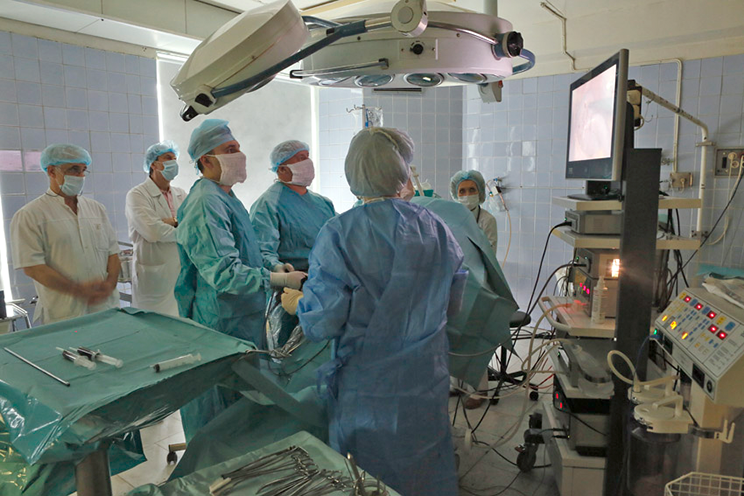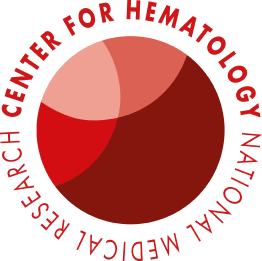
The head of the department is Karen I . Danishyan , Doctor of Medical Sciences, surgeon.
Since 2012, the department has been headed by Doctor of Medical Sciences, Karen I. Danishyan.
The department’s main areas of work include:
- minimally invasive therapeutic and diagnostic interventions in patients with pathology of the blood system
- endoscopic diagnosis of specific lesions of the mediastinum, lungs and abdominal organs in hematological patients
- diagnostics and surgical tactics for urgent diseases of the abdominal cavity in hematology practice
The department is deployed for 40 beds. The patient population is very diverse. These are patients with diseases of the blood system requiring splenectomy, as well as patients with a general surgical profile. Hematological patients are admitted to the department on referral from the outpatient and hematological departments of the NMRC for Hematology, the hematological departments of Moscow city hospitals, and regional and republican hematological centers. Patients with a general surgical profile are referred by the district polyclinics of the city, medical units, therapeutic departments of Moscow city hospitals, anti- tuberculosis dispensaries, district oncologists, as well as by referral from the Ministry of Health of the Russian Federation.
Hematological surgery is very diverse in its content. This is due to various diseases of the blood system. The list of surgical interventions in the treatment of these diseases is extensive. It includes operations on the abdominal organs that affect the pathogenesis of the disease itself, as well as all general surgical interventions performed in various disorders of the blood clotting system and in the treatment of concomitant surgical diseases.
The most common operation in the practice of a hematological surgeon is the splenectomy. Indications for a splenectomy are most often: idiopathic thrombocytopenic purpura, various hemolytic anemias, and tumor lesions of the spleen. Since 1998, 86% of these surgeries in the department have been performed endoscopically. Reducing the invasiveness of the intervention is especially important, since these patients often have impaired immunity and blood coagulation. Using this method, the postoperative period is reduced, requiring a shorter post-operative stay in the hospital.
The use of the endoscopic techniques also makes it possible to expand the indications for performing combined interventions in the presence of concomitant pathology in hematological patients requiring surgical treatment. Laparoscopic splenectomies combined with cholecystectomies, cystovariectomies, and myomectomies can be performed, making it possible for patients to get rid of several diseases at once.
The availability of a modern blood transfusion station with its own bank of blood components at the NMRC for Hematology makes it possible to perform complex surgical interventions for patients with impaired plasma and cellular components of hemostasis, providing patients with a full replacement of the missing coagulation factors. Most importantly, all blood products are quarantined, which excludes the possibility of infection with blood-borne infections.
KEY EMPLOYEES
Sergey A. Shutov — leading researcher, Doctor of Medical Sciences
Kirill R. Sabirov- surgeon
Vladislav E. Salnikov- surgeon
Olga A. Soboleva — surgeon
Igor V. Efimov — surgeon
Maxim A. Silaev — surgeon, Candidate of Medical Sciences
Anastasia I. Tikhonova- surgeon
Semyon V. Dorfman- cardiologist
Svetlana V. Shtyrkova — coloproctologist, Candidate of Medical Sciences
Sergey A. Makhinya- gynecologist
Gennady G. Khodzhaev- gynecologist
Alexander E. Vasiliev- doctor of X–ray endovascular diagnostics and treatment.
Daniel G. Gitelzon- doctor of X–ray endovascular diagnostics and treatment.

The staff of the department operating on a patient





